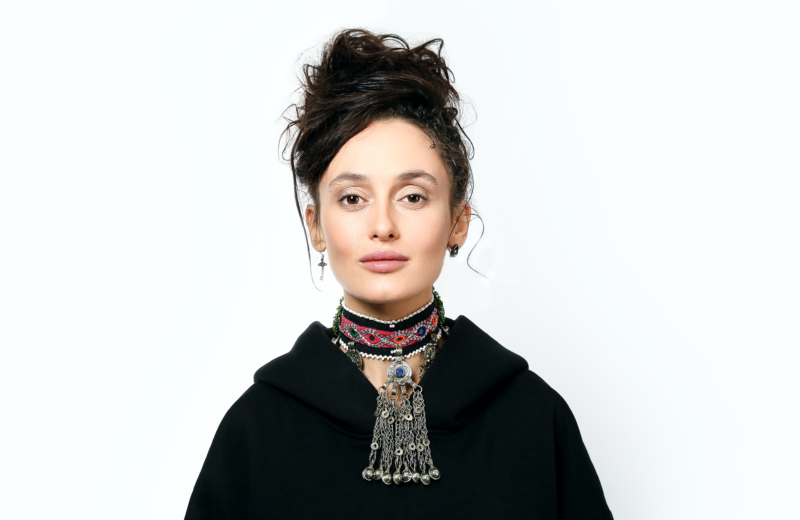Age: 26
Education: Kyiv Municipal Academy of Circus and Variety Arts
Profession: Singer
Did you know? Pash is a singer now, but when she was a teenager, she dreamed of becoming a police officer like her father
When Alina Pash was about to release her first music video for the song “Bitanga” in spring 2018, she did not know it was the major turning point in her life.
“Bitanga,” with its wild mixture of hip-hop and ethno music, has made her famous. It now has over a million views on YouTube.
“It was the beginning of a new era,” Pash says. “The time when Alina Pash actually appeared.”
One year later, Pash performed at the grand show celebrating Ukrainian Independence Day, where the young hip-hop artist rapped a variation on the national anthem of Ukraine in front of President Volodymyr Zelensky and thousands of others.
Now, her schedule is packed with music shows and interviews. But Pash had a long journey to become who she is today.
The singer comes from Bushtyno, a town of nearly 8,000 people nestled in Zakarpattia Oblast, some 850 kilometers west of Kyiv.
Raised in the family of a music teacher and a policeman, Pash started singing in early childhood and performed in front of an audience for the first time when she was six. At the age of 13, every weekend she had to travel alone to Uzhgorod, a western Ukrainian city some 120 kilometers from her home, for vocal classes.
As a child, she first dreamed of becoming an archeologist and later wanted to be a police officer to fight injustice, like her father did. But eventually, music won.
She moved to Kyiv in 2011 and entered the Academy of Circus and Variety Arts. At the time, Pash had a number of jobs connected to the music industry: she worked with DJs, Ukrainian bands and was a backing vocalist for the singer Iryna Bilyk and the band Sky.
She made herself known in 2015 when she took part in the Ukrainian version of a talent show “X-factor.” Although Pash took third place, she was “extremely happy.”
A year after she graduated, Pash released “Bitanga.” Pash says her phone died 30 minutes after she posted the video, as there were so many calls from people congratulating her. “Bitanga” was praised by Ukraine’s music-focused media.
In the “Bitanga” music video, Pash remains true to her roots — she sings in Ukrainian and combines ethnic motives with hip-hop and electronic music.
Pash established her style not only through her music but with her fashion as well: She combines street style with ethnic elements like turbans, bright shawls and lots of accessories.
Now Pash is a recognized Ukrainian artist. She has received an independent music award, a Jager Award, as the best hip-hop artist, and a YUNA music award for the best hip-hop hit of the year. She released two albums and six music videos.
Unlike many of her colleagues, Pash doesn’t have a producer. She writes almost all of her songs herself.
Some Ukrainian media accused Pash of a lack of patriotism, saying she had performances scheduled in Russia. To that, Pash says she has never had a concert in Russia but had had to travel there for personal matters before she became a public figure in Ukraine.
Pash participates in the educational media campaign to fight stigma and violence against LGBTQ people. In her songs, Pash talks about gender equality and other important social issues.
“For me to live means to sing, to talk about important things and to inspire others,” Pash says. “I’m true to myself and all my songs are fragments of my soul.”



